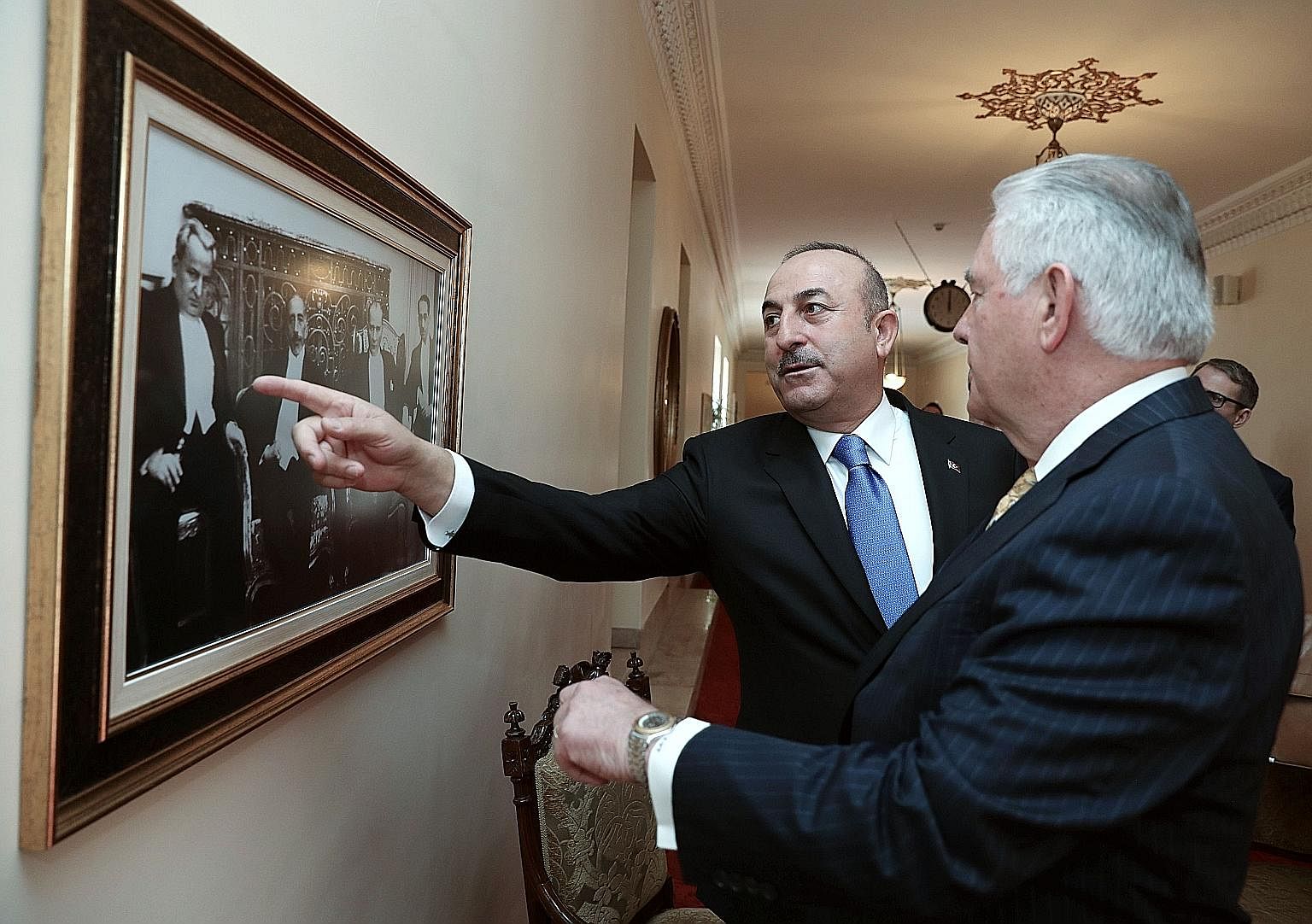United States Secretary of State Rex Tillerson has concluded a whirlwind, week-long tour of the Middle East which included talks with the leaders of Egypt, Kuwait, Jordan, Lebanon and Turkey.
But although the tour signified a return to more traditional American ways of conducting diplomacy and was designed to reassure some of America's closest allies in the region, Mr Tillerson failed to dispel the suspicion that Washington's strategy remains hampered by contradictory signals from President Donald Trump's White House.
America's top diplomat made no secret of his dissatisfaction with Egypt's President Abdel Fattah al-Sisi. Notwithstanding the fact that Egypt is by far the region's biggest nation - a quarter of all the Arabs are Egyptian - Mr Tillerson had shunned the country since he became Secretary of State, and last year froze approximately US$300 million (S$394 million) worth of military aid.
The tension is not so much over Egypt's human rights record; Mr Trump, unlike his predecessor, has praised Mr Sisi who came to power as a result of a 2013 military coup and who looks certain to be re-elected next month. The US leader described his Egyptian counterpart as a "fantastic guy".
Rather, the dispute is over what US intelligence sources have identified as flourishing underground deals between Egyptian arms sellers and North Korea. Egypt, according to American analysts, is one of the North Korea's most significant sanction-busting avenues.
Mr Tillerson failed to persuade his hosts to sever this North Korean link altogether. Egyptian Foreign Minister Sameh Shoukry continued to claim that his country's relationship with North Korea was "limited to representation" despite the fact that, inexplicably, North Korea maintains an oversized embassy in the Egyptian capital of Cairo. Still, Egyptian officials admitted that they should do more.
And Egypt's growing problem with terrorist threats is now bringing the US closer to Cairo again. During his trip, Mr Tillerson staunchly defended Mr Sisi's large-scale military operation designed to crush terrorist networks in Sinai, the arid region adjacent to Israel where hundreds of Egyptian civilians perished last year in various attacks.
During his next stop, the US Secretary of State highlighted America's enduring support for the reconstruction of war-ravaged Iraq at a conference on the topic in Kuwait, pledging a US$3 billion credit line to the Iraqi government.

A helping hand also came from US Defence Secretary James Mattis, who during separate meetings with his European counterparts last week pledged that the US military will remain deployed in the Middle East. The so-called Islamic State in Iraq and Syria terrorist organisation may have recently been shattered in Iraq but "is not down, and the fight is not over", said Mr Mattis.
Still, neither Secretary of State Tillerson nor Defence Secretary Mattis had anything to say about the dispute which is currently affecting Gulf security: The continued showdown between Qatar and a Saudi Arabian-led group of countries, a diplomatic confrontation in which Mr Trump appears to be supporting the Saudis, while some of Washington's top ministers side with Qatar.
Nor was Mr Tillerson able to add much that was new about his stance on the Palestinian-Israeli dispute, another area where the White House is at loggerheads with America's diplomats.
His offer of US$1.3 billion in aid to Jordan over the next five years was a strong signal of support for one regional monarchy which enjoys a widespread and very positive image with all decision-makers in Washington. And the Jordanians reciprocated: Jordan's King Abdullah II referred to Mr Tillerson last week as a "friend".
However, the fact that Mr Tillerson was unable to provide any details about an impending Arab-Palestinian "peace plan" which the Trump White House is supposedly ready to unveil soon puzzled all his regional hosts, including the Jordanian monarch, last week.
And Mr Tillerson's trip to Turkey was not very productive either. Turkish President Recep Tayyip Erdogan is furious with the Americans, who are supporting Kurdish militias in neighbouring Syria, precisely those which the Turks are currently fighting.
"Our relations are at a very critical point", complained Turkey's Foreign Minister Mevlut Cavusoglu, who accused the US of "bad faith" in its Syria diplomacy.
But apart from appealing to the Turks to lower the tone of their public spat with Washington, there is little Mr Tillerson is prepared to do to accommodate Turkey's concerns, for the American military sees the Kurdish militias as the most effective local fighting force, and the US has no plans to downgrade its support for them.
Mr Tillerson's entire week was devoted to dispelling fears among America's allies that the US is disengaging from the Middle East. But that is not how it came across in the region, and even in Israel.
When a military clash between Israel and the Syrian military erupted on Feb 10, Israeli Prime Minister Benjamin Netanyahu picked up the phone and spoke first with Russian President Vladimir Putin, not Mr Trump.

